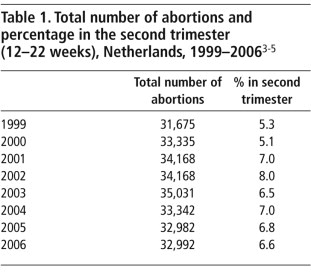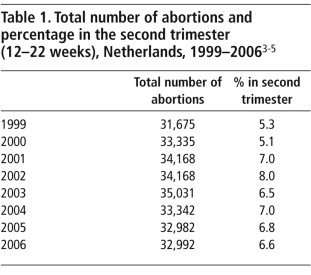Health Systems Global is the first international membership organization fully dedicated to promoting health systems research and knowledge translation. In its effort to catalyse research and convene researchers, decision-makers and implementers, activities will span three broad areas of work:
| • | Creating new knowledge; | ||||
| • | Supporting knowledge translation through a focus on bridging knowledge creation with practical application; and | ||||
| • | Fostering research on the application of new knowledge in real world settings, i.e. implementation science. | ||||
Vision
Globally connected health systems research and policy communities contribute to the attainment of better health, equity and well-being.
Mission
Convene researchers, policy-makers and implementers from around the world to develop the field of health systems research and unleash their collective capacity to create, share and apply knowledge to strengthen health systems.
Strategic plan 2013–2015: a summary
Overview
The Health Systems Global strategic plan is intended to identify priorities to guide decision-making, provide the basis for determining resource requirements and serve as the basis for planning specific activities to achieve strategic goals. The strategic plan is expected to guide Health Systems Global from mid-2013 through the end of 2015.
Strategic objectives:
| 1. | Build health systems research communities that encompass policy-makers, researchers, NGOs and funders Rationale: The development of the field of health systems research has been undermined by fragmentation within the community, both among researchers who often come from different disciplinary perspectives, and between researchers and users of research. As a society that embraces all of these groups, Health Systems Global will seek to build stronger linkages across them. | ||||
| 2. | Advance the field of health systems research through further development of health systems research methods, and of the skills and competencies of Health Systems Global members Rationale: Health systems research is a relatively young field and, drawing as it does upon multiple disciplines and methods, there is a need to develop the field through improved conceptual frameworks, taxonomies, methods, measures, and criteria for evaluating the strength of evidence. Health Systems Global will also help to build skills across those active in the field through a variety of strategies to support capacity development for individuals. | ||||
| 3. | Mobilize and support relevant communities to engage in and advocate for health systems research Rationale: The very nature of the issues that are the focus of health systems research demands broad participation in the inception, development and dissemination of research. Health Systems Global embraces the need for pluralistic, people-centred approaches to promoting the use of evidence in policies and programs. This engagement is critical not only in enhancing the use of evidence but also in increasing public recognition of the value of investing in health systems research. | ||||
| 4. | Ensure that Health Systems Global is strong and sustainable Rationale: As a new society there is much that Health Systems Global needs to do to build its own organizational and governance structures and capacities so that it can continue its work in a sustainable fashion. | ||||
Information from: http://www.healthsystemsglobal.org/
Third Global Symposium on Health Systems Research: Statement from the Conference Organising Committee
Cape Town, South Africa, 3 October 2014
Introduction
Cape Town welcomed the world to the Third Global Symposium on Health Systems Research between 30 September and 3 October 2014. One hundred and twenty five countries were represented by almost 2000 participants, who gathered to discuss and debate the science and practice of people-centred health systems. Over the course of the symposium, which included four plenary sessions, 170 concurrent and satellite sessions, 572 posters and 11 films, participants had the opportunity to immerse themselves in the field of health policy and systems research. Policy-makers, activists, community representatives, managers, researchers and educators from around the world shared new information and insights from their experiences with the journey to universal health coverage, the theme of the Second Global Symposium, and developed a deeper understanding of people-centred health systems.
This statement was synthesized from broad-ranging discussions over the three days of the meeting, drawing upon rapporteurs’ notes across all the sessions.
Our discussions
Health systems need to be reoriented to respond to people’s emerging health needs, be directly accountable to ordinary people, and respect and ensure the rights and dignity of all people who use health systems and provide health care.
Nowhere is this need more apparent than with the recent Ebola epidemic in several West African countries. Ebola and other health challenges worldwide highlight the need to redouble attention on health system challenges, including the unequal availability of resources underpinned by existing power relations between and within countries, the variable quality of health services and lack of appropriate health information to assist those at the frontlines of health care.
The drive towards universal health coverage should be led by citizens, and local and national governments rather than by external actors, and in line with the needs and priorities of communities and citizens. Segmented systems that risk providing poorer services to the poor are unacceptable in people-centred health systems. Multiple disease programs, types of service providers and traditions of health care require effective coordination within health systems.
Many crucial drivers of health system change lie outside of the traditional boundaries of the health system; social mobilization and intersectoral action are critical for re-orienting health systems to be more people-centred. Community health workers can play an important linking role in enabling inclusive and representative community participation. We need to promote local institutional mechanisms that support inclusive and representative community participation in health, recognizing that the collective voice can drown out the needs of the most marginalized and vulnerable.
Health systems serve people but are also made up of people, who need effective environments in which to work. Supportive supervision and high quality, continuing training for health care workers emerged as crucial needs across settings. Supportive and effective working environments for health workers are important, which should include appropriate financial and non-financial incentives.
Barriers to access to care must be removed, including financial barriers that exclude the poorest and most marginalized. Governments need to provide sufficient funding for the provision of effective and responsive care, and develop effective financial protection measures.
Progress since last conference, Beijing
We note with pride the accomplishments of key milestones committed to in Beijing in 2012. Building on the 2012 WHO Strategy for Health Policy and Systems Research, there has been a consolidation and growth of the health systems research community. Health Systems Global now has over 1,500 members from more than 90 countries, and the Society has further developed through nine active and engaged thematic working groups, and a renewed board. The third symposium has demonstrated the vibrancy of our community.
Actions
The Symposium covered a number of action themes including health systems development, capacity development for research, cutting-edge and innovative research methods, and learning communities and knowledge translation.
Health system development
Informed by discussions and research presented during the meeting, there are a number of important areas for health system development. The focus on people-centredness emphasized the following points in particular:
| • | Encourage and enable national governments to own and lead health reforms towards the achievement of universal health coverage | ||||
| • | Promote a comprehensive financing strategy that underpins a comprehensive set of entitlements | ||||
| • | Engage multiple constituencies to increase the fiscal space for the health sector | ||||
| • | Ensure inclusion of the most marginalized and vulnerable, whose needs and rights must be central in a people-centred health system | ||||
| • | Promote community participation in planning and monitoring health services, to make them more responsive to people’s needs | ||||
| • | Ensure that research is embedded in programs from the point of design | ||||
| • | Promote innovative service-delivery models, including the use of technology such as m-health and e-health to ensure quality and continuity of care. | ||||
Beyond this, there were recommendations bearing on health systems more generally:
Capacity development for health systems research
| • | Acknowledge and applaud the emerging voices and leaders amongst us and recognize the need to continue to strengthen our efforts to nurture the future generations of the health systems community | ||||
| • | Address inequities in the availability of health systems research training, and deepen and expand efforts to strengthen teaching for health systems development and research. | ||||
Research topics and methods
| • | Promote understanding of civil society and social movements that support people-centredness | ||||
| • | Further develop our understanding of health workers, particularly mid-level health workers, their felt experiences and how to empower them to provide people-centred health services | ||||
| • | Allow the experience of communities and health workers to be heard, through use of innovative research methods that engage and empower communities including participatory action research, photo-voice, simulations and games | ||||
| • | Understanding scaling-up of health programs in different contexts remains a priority research area. | ||||
Knowledge networks and learning
| • | Build our communities through bringing together diverse groups including policy-makers, activists, community representatives, managers, researchers and educators | ||||
| • | Develop skills to communicate about health systems amongst diverse constituencies | ||||
| • | Journals need to create space for people-centred knowledge and other innovative forms of health systems research | ||||
| • | Promote learning from implementation and capture tacit knowledge. | ||||
These actions have different implications for different actors. We note, in particular that funders need to engage in longer-term funding of research programs and research capacity building, and we encourage them to help reframe research funding models so as to better engage local stakeholders.
Thematic working groups
This is the first meeting where the Health Systems Global Thematic Working Groups met and began to coalesce into communities. The Thematic Working Groups will help take forward these and other recommendations arising from the symposium. They are:
Conclusion
Vancouver, Canada, is eagerly anticipating the arrival of the global health systems community in 2016, for the Fourth Global Symposium on Health Systems Research. There we will evaluate how far the world has progressed towards adopting a people-centred approach to creating sustainable, equitable, responsive health systems for the benefit of all. In the words of one presenter at the 2014 symposium, we are one world, united in a quest for health for all, beyond the borders of politics and economics. We encourage researchers and funders to contribute towards this global vision.
Symposium website
The Symposium website is being updated to reflect what happened in Cape Town:
| • | The closing Cape Town Statement is there for you to read again and share with colleagues. | ||||
| • | Read news coverage of the Symposium. | ||||
| • | |||||
| • | Search the abstracts of presentations: posters and oral presentations or in the downloads section to find something you missed. | ||||
More information from: http://www.healthsystemsglobal.org/


